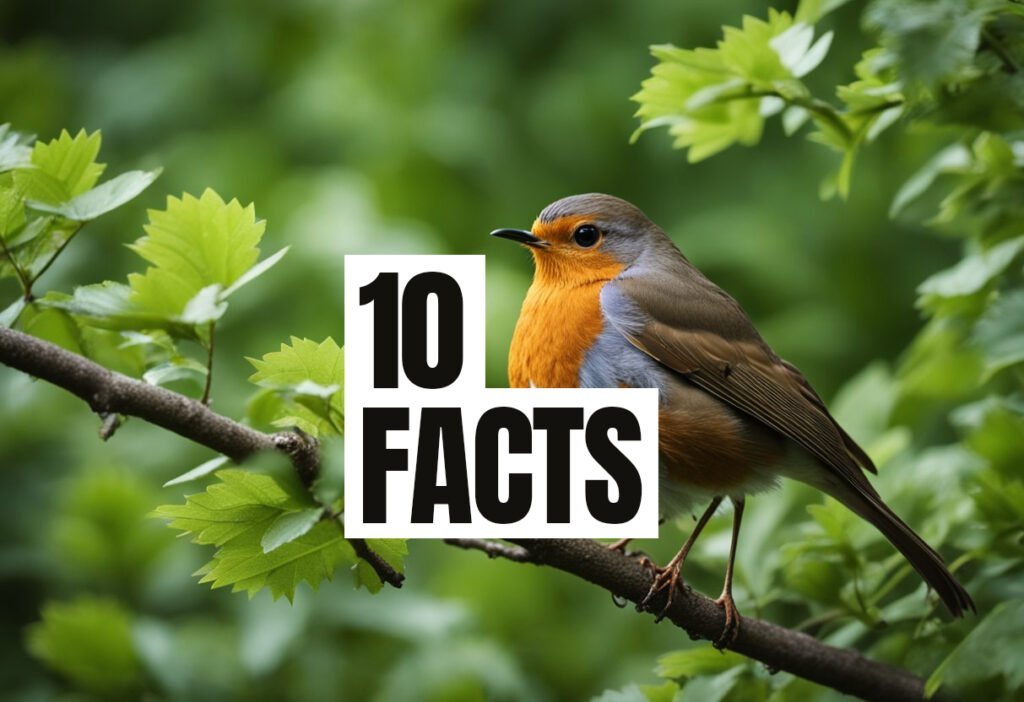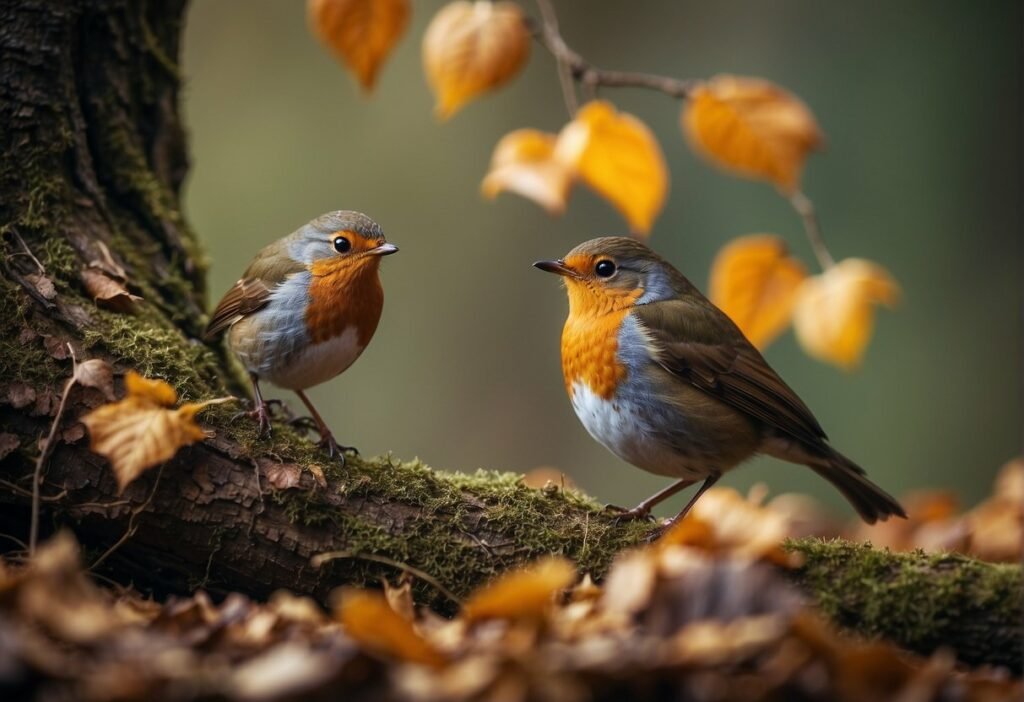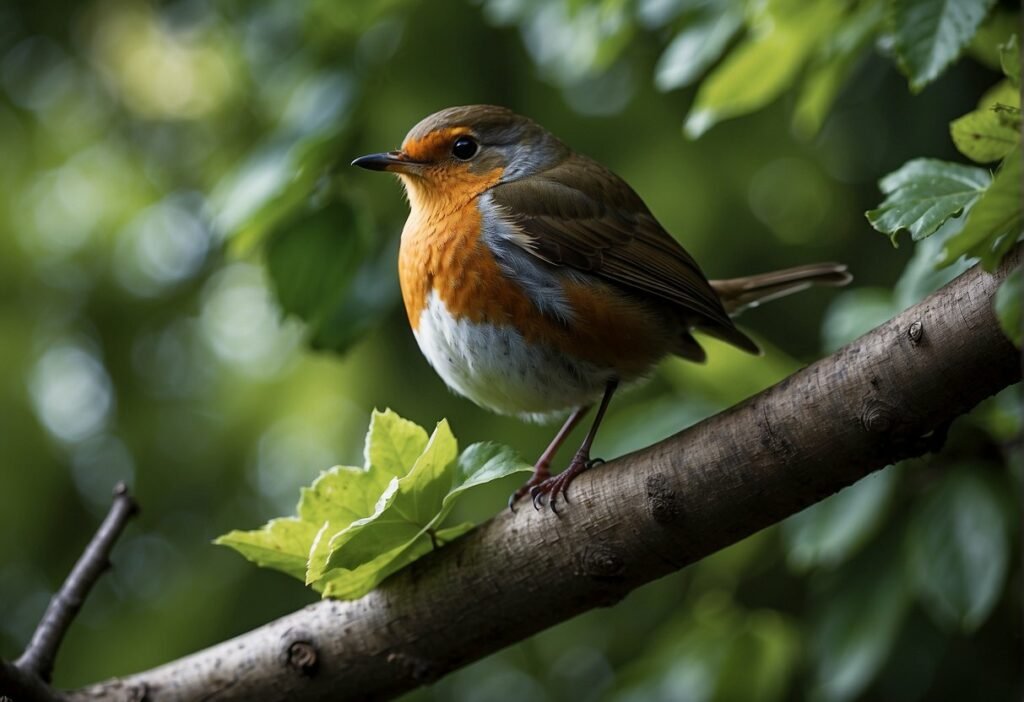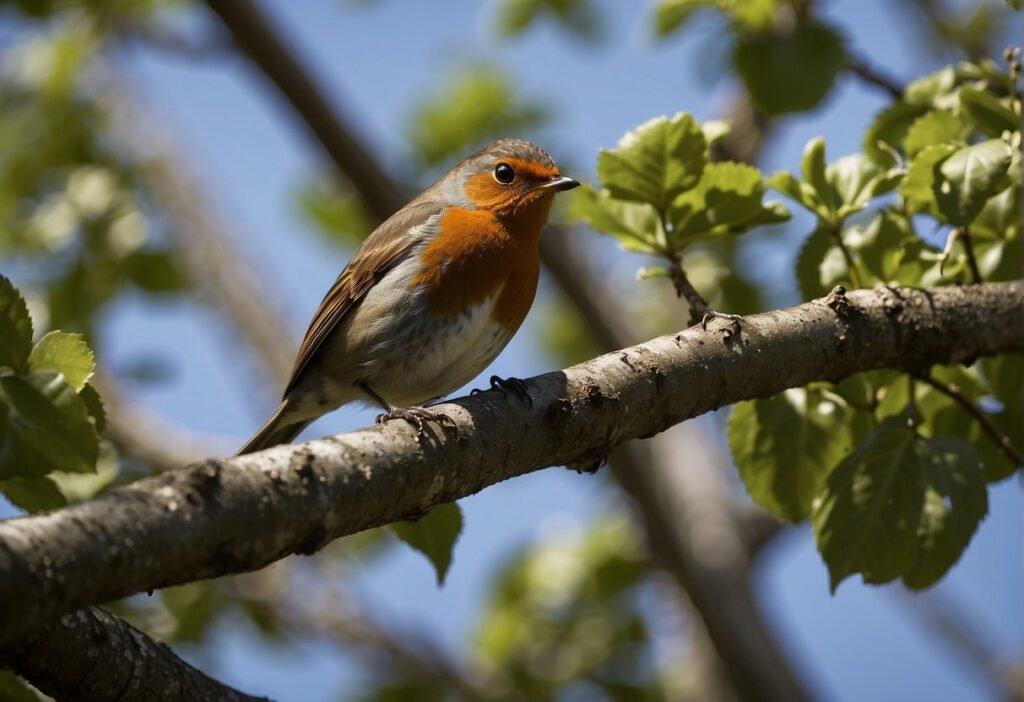Creating a robin-friendly backyard is a great way to attract these beautiful birds to your outdoor space. Robins are a common sight in many parts of the world and are known for their distinctive orange breast and cheerful song. By providing the right habitat and food sources, you can encourage robins to visit your backyard and even nest there.

One of the first steps to creating a robin-friendly backyard is to provide the right habitat. Robins prefer open spaces with plenty of grass and shrubs for cover. They also like areas with trees or other structures for perching and nesting. By creating a mix of open areas and sheltered spots, you can provide a welcoming environment for robins to explore and make their home.
Another important aspect of a robin-friendly backyard is food. Robins primarily eat insects and worms, so having a variety of plants and flowers that attract these creatures can help attract robins. You can also offer mealworms or other bird feeders to supplement their diet. By providing a variety of food sources, you can ensure that robins will have plenty to eat and will be more likely to visit your backyard.
Creating a Robin-Friendly Habitat
Creating a welcoming environment for robins in your backyard is easy and rewarding. With a few simple steps, you can make sure that your garden is a safe haven for these beautiful birds.
Plant Selection
One of the most important things you can do to attract robins is to choose the right plants. Native plants are always a good choice, as they provide natural cover and food sources that robins are familiar with. Trees and shrubs that produce berries, such as holly or elderberry, are particularly attractive to robins. You can also plant grasses and wildflowers to provide cover and attract insects, which are an important food source for robins.
Nesting and Shelter
Robins prefer to nest in a sheltered spot, such as a dense shrub or tree. You can provide nesting sites by installing a nest box or by leaving natural cavities in trees. Make sure that the nesting sites are protected from predators, such as cats or squirrels, and that they are located away from high-traffic areas.
Feeding Robins
Robins are omnivores and will eat a variety of foods. Insects, worms, and mealworms are a favorite food source, but they will also eat fruit, seeds, and berries. You can provide food for robins by planting fruit-bearing trees and shrubs, such as cherry or raspberry, or by putting out a bird feeder with mealworms or seeds.
By following these simple steps, you can create a robin-friendly habitat that will provide food, shelter, and nesting sites for these beautiful birds. With a little effort, you can enjoy the sight and sound of robins in your backyard all year round.
Maintaining a Healthy Environment
Creating a robin-friendly backyard involves more than just providing food and shelter. It is important to maintain a healthy environment that promotes the well-being of these birds. This section will discuss two critical aspects of maintaining a healthy environment: water sources and safety and cleanliness.
Water Sources
Robins need a source of fresh water to drink and bathe in. Birdbaths are a great option, but it is important to keep them clean and filled with fresh water. Stagnant water can harbor harmful bacteria that can make birds sick. It is also important to place the birdbath in a location that is visible to the birds but not too close to shrubs or trees where predators could be hiding.
In addition to birdbaths, robins also appreciate natural water sources such as puddles and streams. If you have a natural water source in your backyard, be sure to keep it clean and free of debris.
Safety and Cleanliness
Maintaining a safe and clean environment is important for the health of robins. Avoid using pesticides in your backyard as they can harm not only the birds but also the insects that they rely on for food. Instead, use natural pest control methods such as companion planting and insect traps.
It is also important to keep your backyard clean and free of debris. Fallen leaves and branches can attract harmful bacteria and pests. Additionally, be sure to clean up any spilled birdseed or suet to prevent the spread of disease.
Finally, provide protection for robins from predators. This can be achieved by placing birdhouses and nesting boxes in safe locations away from predators. You can also provide cover for robins with shrubs and bushes.
By maintaining a healthy environment, you can help ensure the well-being of robins in your backyard.
Frequently Asked Questions
What are the best practices for creating a robin-friendly feeder?
To create a robin-friendly feeder, it is important to place it in an open area where robins can easily access it. The feeder should be placed near trees and shrubs, as robins tend to use these as perches. The feeder should also be kept clean and filled with fresh food, such as mealworms, raisins, and chopped fruit.
Can robins recognize and interact with humans in a garden setting?
Robins are known to be curious birds and may approach humans in a garden setting. However, it is important to remember that robins are wild animals and should not be encouraged to become too comfortable around humans. It is best to observe robins from a distance and avoid disturbing their natural behavior.
What types of fruit can be included in a backyard to attract robins?
Robins are known to enjoy a variety of fruits, including berries, cherries, and apples. It is important to offer a variety of fruits to attract a diverse range of birds to your backyard.
How should one feed robins during the winter months?
During the winter months, it is important to offer high-energy foods to robins, such as suet, peanuts, and sunflower seeds. It is also important to keep the food and water sources clean and free of ice.
What are the ideal specifications for a robin nest box?
A robin nest box should be placed in a sheltered area, such as under the eaves of a building or in a tree. The box should be approximately 8 inches wide and 8 inches deep, with a 2-inch diameter entrance hole. The box should also be lined with dry grass or other nesting materials.
What are the benefits of having robins in your yard?
Robins are beneficial to have in your yard as they help to control insect populations and spread seeds. They are also beautiful and entertaining birds to observe. By providing a robin-friendly environment, you can help to support these important members of your local ecosystem.




